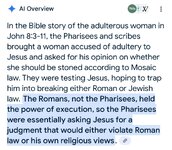The death penalty as a special punishment was recognised in the Old Testament. There are no indications to the need to abolish it in the New Testament or in the Tradition or in the historical legacy of the Orthodox Church either. At the same time, the Church has often assumed the duty of interceding before the secular authority for those condemned to death, asking it show mercy for them and commute their punishment. Moreover, under Christian moral influence, the negative attitude to the death penalty has been cultivated in people's consciousness. Thus, in the period from the mid-18th century to the 1905 Revolution in Russia, it was applied on very rare occasions. For the Orthodox church consciousness, the life of a person does not end with his bodily death, therefore the Church continues her care for those condemned to capital punishment.
The abolition of death penalty would give more opportunities for pastoral work with those who have stumbled and for the latter to repent. It is also evident that punishment by death cannot be reformatory; it also makes misjudgement irreparable and provokes ambiguous feelings among people. Today many states have either abolished the death penalty by law or stopped practicing it. Keeping in mind that mercy toward a fallen man is always more preferable than revenge, the Church welcomes these steps by state authorities. At the same time, she believes that the decision to abolish or not to apply death penalty should be made by society freely, considering the rate of crime and the state of law-enforcement and judiciary, and even more so, the need to protect the life of its well-intentioned members.

